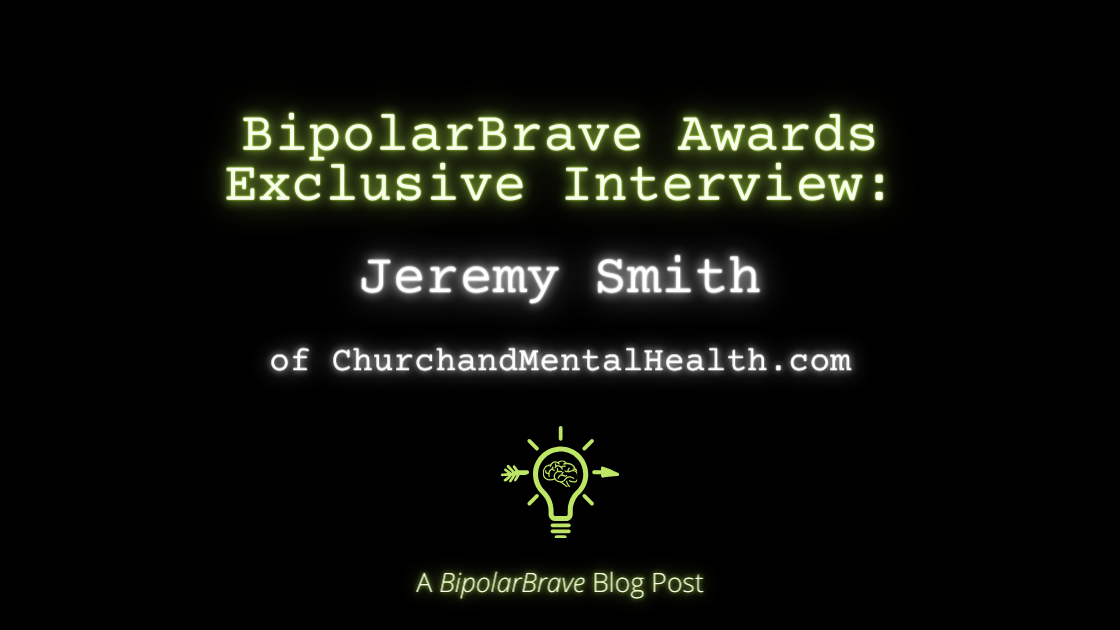This is one of a series of interview posts for the month of May, celebrating those raising awareness for mental health. The series will showcase those who won or placed in the annual BipolarBrave Mental Health and Faith Awards I host each year through the BipolarBrave blog.
Jeremy Smith’s blog on ChurchandMentalHealth.com earned third place in the BipolarBrave awards this year. I have run in the same circles as Jeremy through some online summits, including the Church Mental Health Summit and Thrive and Cultivate.
Today, Jeremy serves as the editor of ChurchandMentalHealth.com and the Co-Occurring Program Coordinator and a Licensed Professional Clinical Counselor at a community mental health center. Jeremy has a history of working as a ministry director for Youth for Christ for 8 years and then worked as a mental health and substance use adult counselor in Colorado and Ohio, specifically running an Opioid Residential Treatment Center. He has been a guest speaker for conferences such as Thrive and Cultivate Summit, Church and Mental Health Summit, and others.
Jeremy graciously agreed to let me interview him for the BipolarBrave blog to speak to his accomplishments and efforts in the faith and mental health movement. I’m grateful for him and the work he has faithfully followed the Lord in over the years.
 Why did you start your ministry?
Why did you start your ministry?
I have always believed that the Church is the rock of the world, the same rock that Peter preached from. And just as Peter had his many shortcomings, with mental health in the 21st century, the North American church has struggled to show love, grace, compassion, and support for the widows, orphans, and broken. In fact, I’ve heard it said from Dr. Grcevich that the largest population of people not reached in the United States is those with disabilities, developmentally, emotionally, and neuro-cognitively. As a mental health professional, I want to serve the Church and also empower her to serve the community and congregation.
In a few sentences, share your ministry’s measurable achievements.
The hope has always been to help foster more dialogue with pastors and mental health professionals. In the last year, we have seen a 200% growth from last year which had an even larger growth in audience. Within that, we have been offering resources to churches more and more. But I tend to hold the “it’s not about the numbers” stance and instead, it’s about the relationships. I have numerous people who are key figures in the mental health and faith space and it continues to grow. We have been able to make connections with Christian mental health professionals as well as mental health professionals at a state and federal level who see the importance of spirituality.
What are your future plans for your ministry? Anything noteworthy to give us a heads-up about?
It is one thing to attempt to foster conversations, it’s another to be open and honest about what we are and are not doing, so a new initiative of qualitative and quantitative research is up and coming. We need so much more because as Barna shows, pastors believe they are doing it well and congregations do not see it so there is a true cognitive disconnect. (https://research.lifeway.com/
Where do we find out more about your ministry and how can we support you?
We write almost weekly on the topic of mental health and the Church at https://


What do you think?